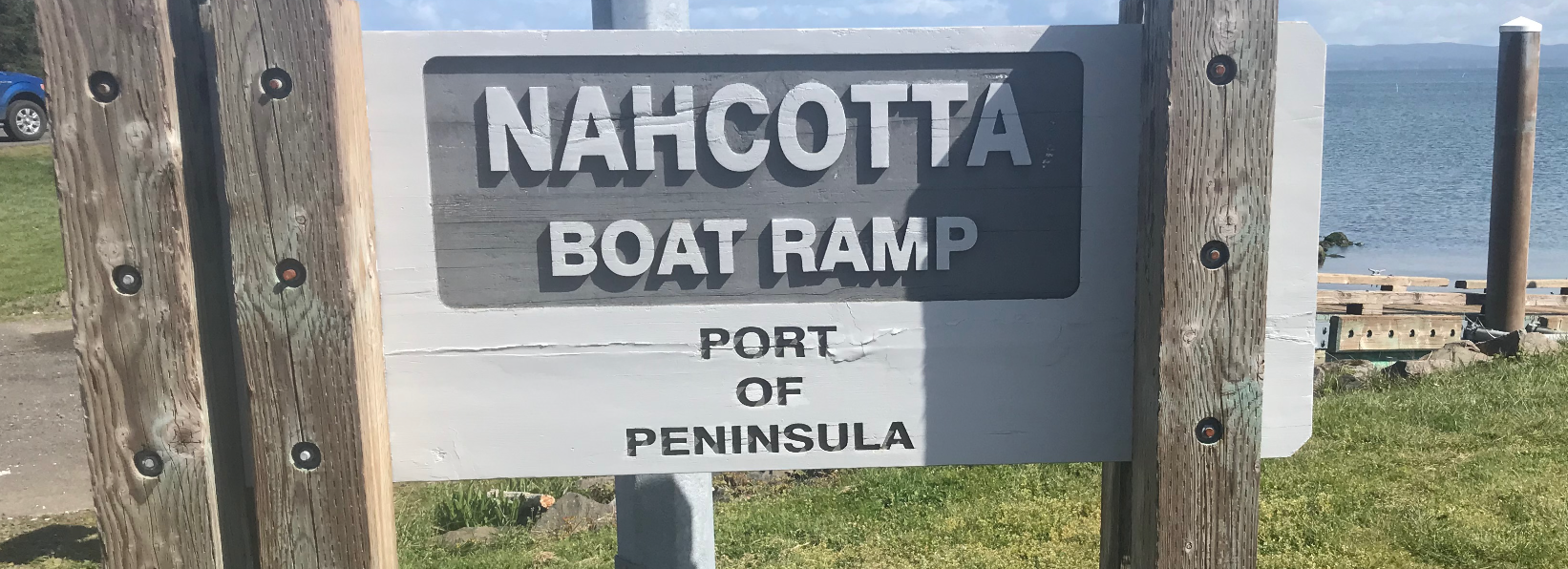Yakima offers hope for peninsula shelter advocates
Published 3:39 pm Monday, October 30, 2023

- Michael Kay, left, is pictured with Nancy McAllister, president of Peninsula Poverty Response. Kay gave a presentation on Camp Hope, a successful Yakima program which provides help for homeless people. Kay was an 18-year veteran police officer who became a pastor before stepping up to lead the homeless program in Yakima.
‘These people have no place to go.’ Blaine Gunkel, Peninsula Poverty Response supporter
‘These people have no place to go.’ Blaine Gunkel, Peninsula Poverty Response supporter
Leaders helping the Long Beach Peninsula’s homeless community learned from an apparently successful program last week.
Representatives of Camp Hope described to Peninsula Poverty Response volunteers how the greater Yakima area has tackled the issue.
But its director, Michael Kay, warned that the best programs are geared to individual needs of their communities.
“It’s not the Seattle plan,” he told an audience of 40 last Wednesday. “Customize the program for your area with the resources that you have available. Make it similar to Camp Hope, but tailor it for the peninsula.”
‘These people have no place to go.’
Blaine Gunkel, Peninsula Poverty Response supporter
Before the presentation, Kay spent time with Travis Ostgaard, Pacific County’s code enforcement officer, and Ally Rose, the poverty group’s program navigator.
Together they interviewed homeless community members, asking them to list their needs. “We went out with Travis and talked to 10 people,” Kay said. “All said if there was a shelter — ‘I would use that, that would be awesome!’
“They don’t want to be outside.”
The scale was an eye-opener for Blaine Gunkel, a Peninsula Poverty Response supporter. “I was surprised at the need and the number of people that were hidden back in the woods and near residential areas down by the river,” he said. “These people have no place to go.”
‘Inspirational’
Peninsula Poverty Response is embarked on its fall fundraising campaign, seeking to provide solutions, including a permanent shelter.
“The presentation by Camp Hope-Yakima was very inspirational,” said Nancy McAllister, president of Peninsula Poverty Response. Kay described how representatives from Cincinnati, Detroit, Sacramento and Houston have observed their operations in Yakima.
“It is apparent that this model is being considered by a number of cities and states in the nation who either have no answer or failed attempts to deal with the homeless challenges,” McAllister noted.
Helpers
Kay’s camp thrives on a leased land away from sites of former temporary encampments in Yakima’s downtown core. It has a secure entrance and on-site services, including counselors to address behavioral health and substance abuse. Drug dogs sweep the campus periodically and weapons are banned. One attraction has been allowing homeless people to keep their pets. Legitimate prescription medications are locked away safely.
It was started as a 90-day experiment in 2017 in response to a court case, and Kay admitted city leaders didn’t think it would succeed. Expecting 30 on the first night, they housed 54.
There were 212 residents in the shelter the day before his visit to Long Beach, which began as a small tent city and has developed into a set of huts. Donated jail beds are used, arranged like college dorm rooms.
Numbers
McAllister said there was a lot to learn from the example. “The peninsula is much smaller in population than Yakima, but we have a need and could consider a similar blueprint on a smaller scale,” she said. “We have people living in storage units, tents, cars and RVs without water, sewer and power.”
When the group marked “World Homeless Week” in mid-October, leaders revealed that since the year began they:
- Responded to more than 1,100 requests for assistance;
- Helped 300 families with free propane;
- Paid for 3,000 loads of laundry through the “Laundry Love” program.
These programs are part of a year-round attempt to address the needs of homeless community members. Rose is on call weekday daytimes to respond to help individuals. The laundry program is a weekly event. Once a year in late January, the group collaborates with partner agencies and others to host a Community Connect day, at which a variety of services are offered, including new tents, backpacks and hygiene products, as well as free medical, dental and optical checks.
‘Generous’
McAllister is appealing for donations to continue the group’s work as its leaders ponder how to create a shelter — and where to put it.
“Our community has always been generous toward helping neighbors,” she said. “The amount of fundraising needed will depend on the source of land.
“A lot of our homeless people move around, due to a lack of secure locations. By giving them an organized central location, our community will help those less fortunate get the resources they need from our partners currently in the community.”
She has no target date — but acknowledges the weather is getting worse.
“As for an implementation date, I would really like to see something set up quickly to help our homeless neighbors through this coming cold season.”
‘These people have no place to go.’ Blaine Gunkel, Peninsula Poverty Response supporter {related_content_uuid}e4435caa-8209-496f-8a0f-e488fbcb87f1{/related_content_uuid}





